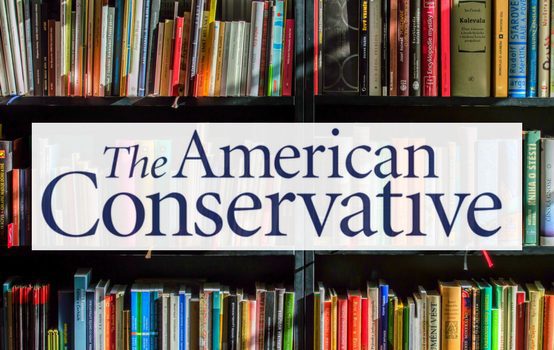TAC Bookshelf: Defending the West in Space and at Home

Bradley J. Birzer, TAC scholar-at-large: “With the possible exception of [Aldous] Huxley,” Brian Aldiss once claimed, “C.S. Lewis was the most formidable and respected champion of science fiction the modern genre has known.” Over the past few weeks, I’ve put this assertion to the test, rereading the first two of Lewis’s Space Trilogy novels, Out of the Silent Planet and Perelandra. From my own reading, Aldiss was certainly correct. Lewis was equal parts playful, insightful, intelligent, perceptive, and mischievous. Yet when he tries to get across his theology, he is, strangely, less successful, as his angels (the Eldila) come across as too mechanistic. Still, Lewis’s hero, Elwin Ransom of Leicester College, Cambridge—a not-so-disguised version of Lewis’s close friend, J.R.R. Tolkien—is truly heroic, possessed of all the human doubts and Christian hopes of any real man caught in trying circumstances. Wonderfully, when Ransom maintains his sanity against demonic odds, he keeps close to him the Western tradition. As Lewis describes of one challenging moment, “He recited all that he could remember of the Iliad, the Odyssey, the Æneid, the Chanson de Roland, Paradise Lost, the Kalevala, the Hunting of the Snark, and a rhyme about Germanic sound laws which he had composed as a freshman.”
Given that it’s almost Halloween, I have also been reading loads of H.P. Lovecraft and his greatest successor of the early 21st century, Stephen King. Whatever King’s bizarre political pronouncements on Twitter, the man can still write a mighty novel. His latest, The Institute, borrows significantly from Stranger Things and Harry Potter. Yet it’s still a King-ian thing of wonder, gripping, fascinating, and, like Lewis’s Space Trilogy, properly heroic and virtuous. Evil is evil, and good is good, even when it doubts itself.
In the vein of the heroic, I have—just last week—re-read two different translations of Beowulf. The first was Seamus Heaney’s 2000 version, and the second was J.R.R. Tolkien’s 1926 version (published in 2014 as Beowulf: A Translation and Commentary). Few people in this world have been as glorious in defense of the True West as Beowulf and his faithful companion Wiglaf. Their tale never grows old.
Finally, I have just started reading a review copy of C. Bradley Thompson’s latest book, America’s Revolutionary Mind: A Moral History of the American Revolution and the Declaration that Defined It (Encounter Books, November 2019). Already recognized as a leading authority on John Adams, the abolitionists, and other excellent aspects and persons of Revolutionary and Jacksonian America, Thompson offers an extraordinary and original look at ethics and philosophy in the 1770s. America’s Revolutionary Mind is a stunning achievement by any measure, and I happily still have half the book to read!
Emile A. Doak, TAC senior development associate: Christopher Caldwell has emerged as one of the most astute observers of this age of populism in the West. His forthcoming book, The Age of Entitlement: America Since the Sixties, further solidifies the indispensability of his writing to understanding our current moment—and what got us here. One of the perks of working at a publication is receiving review copies of yet-to-be-published books, but Caldwell’s is one that would demand purchase anyway.
I’m not yet far into the book, but already the story Caldwell tells of American society since the Sixties cuts against the prevailing narrative. He dives right in to one of the most contentious issues of our time: race. In a meticulously researched and brilliantly argued chapter, he shows how the Civil Rights Act of 1964 effectively created a parallel constitution to the original of 1787. The Act, by “empowering the federal government to reform and abolish certain institutions that stood in the way of racial equality,” reframed the state’s purpose as the arbiter of private associations’ compliance with the goal of eradicating unjust racial discrimination. As Caldwell writes, “the reinterpretation of America’s entire history and purpose in light of its race problem is the main ideological legacy of the last fifty years.” In this light, the New York Times’ much-derided 1619 project is but a direct descendent of the themes of the civil rights movement. And in retrospect, expecting institutional change without fundamentally changing institutions seems a fool’s errand.
The sexual revolution and Vietnam war also feature convincingly in Caldwell’s argument for the emergence of this “new constitution,” and the latter half of the book details how the momentous Sixties shaped what we’re now living through. The usual conservative culprits are on offer, from identity politics to political correctness to Black Lives Matter to Obergefell. But The Age of Entitlement is much more interesting and important than a typical right-wing screed and it shouldn’t be pigeonholed as partisan. Our society is coming apart. If we are to have any chance of reversing that trend, we need to reimagine the narrative that’s gotten us here. Caldwell’s book is the place to start.
Comments